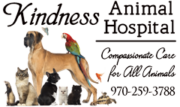Welcoming a new puppy or kitten into your home is an exciting and joyful experience filled with love and companionship. However, it also comes with significant responsibilities to ensure that your furry friend grows up healthy, happy, and well-adjusted. Proper care during these early stages of life lays the foundation for a strong and lasting bond between you and your pet.
Nutrition
Proper nutrition is critical for the growth and development of puppies and kittens. Selecting the right food ensures they receive essential vitamins, minerals, and proteins necessary for healthy development. Here are key points to consider for optimal nutrition:
- Choose High-Quality Food: Look for pet food that lists meat as the first ingredient and avoid foods with artificial additives and fillers.
- Age-Appropriate Diet: Puppies and kittens have different nutritional needs than adult pets. Make sure to select food specifically formulated for their age group.
- Portion Control: Follow feeding guidelines based on your pet’s weight and age. Overfeeding can lead to obesity, while underfeeding can result in nutritional deficiencies.
- Feeding Schedule: Establish a regular feeding schedule. Puppies and kittens generally need more frequent meals throughout the day compared to adult pets.
- Hydration: Always provide freshwater. Puppies and kittens are particularly prone to dehydration, so ensure their water bowls are always full and clean.
- Veterinarian Advice: Consult your veterinarian to tailor a diet plan specific to your pet’s needs. This is especially important if your pet has specific health concerns or dietary restrictions.
Proper nutrition during these formative months supports strong bones, a healthy immune system, and overall vitality, setting the stage for a long and healthy life.
Healthcare
Regular veterinary care is essential for maintaining your pet’s health and well-being. From vaccinations to preventive treatments, a consistent healthcare routine can help your puppy or kitten thrive. Here are key healthcare steps to follow:
- Vaccination Schedule: Ensure your pet receives core vaccinations, such as those for rabies, distemper, and parvovirus, at the appropriate ages. These vaccinations protect against serious, life-threatening diseases.
- Wellness Exams: Schedule regular check-ups with your veterinarian. These exams help detect potential health issues early, ensuring prompt treatment and better outcomes.
- Parasite Prevention: Protect your pet from common parasites like fleas, ticks, and worms with preventive treatments. Discuss options such as topical treatments, oral medications, and collars with your vet.
- Spaying/Neutering: Spaying or neutering your pet not only helps control the pet population but also offers health benefits, including reduced risk of certain cancers and behavioral issues.
- Microchipping: Microchipping your pet provides a permanent form of identification, increasing the chances of reunification if they become lost.
Recognizing signs of illness is also crucial. Look for symptoms like changes in appetite, lethargy, vomiting, or diarrhea, and seek veterinary care if these occur. Regular healthcare practices lay the foundation for a long, healthy life for your pet, ensuring they remain a cherished member of your family.
Training and Socialization
Training and socialization are crucial for raising well-behaved and sociable pets. Proper training ensures that your puppy or kitten understands boundaries and commands, making them easier to manage and happier overall. Here are essential training and socialization tips:
Basic Training Techniques:
- Housebreaking: Start with crate training and establish a consistent routine for bathroom breaks. Reward successful attempts with praise and treats.
- Leash Training: Introduce your pet to wearing a collar and leash gradually. Use positive reinforcement to encourage walking without pulling.
- Simple Commands: Teach basic commands such as “sit,” “stay,” “come,” and “leave it.” Use treats and praise to reinforce good behavior.
- Positive Reinforcement: Always use positive reinforcement methods, such as treats, praise, and playtime, to reward desired behaviors. Avoid punishment, as it can create fear and anxiety.
Socialization:
- New Environments: Gradually expose your pet to different environments, sounds, and experiences. This helps them become well-adjusted and less fearful.
- Meeting People and Animals: Introduce your pet to a variety of people and other animals. Controlled interactions help them develop social skills and reduce the risk of aggression or fearfulness.
Consistency: Be consistent with commands, routines, and rules. Consistency helps your pet understand expectations and builds trust between you and your pet.
Training and socialization during the early months are vital for fostering good behavior and emotional stability. Well-trained and socialized pets are more confident, less anxious, and form stronger bonds with their families, ensuring a harmonious household.
Ensuring a Healthy Start for Your New Pet
Welcoming a new puppy or kitten into your Durango, Bayfield, Pagosa Springs, or Farmington home is a rewarding experience that comes with essential responsibilities. By focusing on proper nutrition, regular healthcare, and effective training and socialization, you can ensure your new furry friend grows into a healthy, well-adjusted adult pet. At Kindness Animal Hospital, we are dedicated to providing top-notch veterinary care to support you in this journey. For personalized advice and comprehensive pet care, book an appointment with us today by visiting Kindness Animal Hospital. Embrace the joy of pet parenthood with confidence and peace of mind.
Kindness Animal Hospital provides comprehensive veterinary care, including wellness care, vaccinations, emergency and urgent care, complementary medicine, diagnostics, surgery, and more for cats and dogs in Durango, Bayfield, Pagosa Springs, Farmington, Aztec, Cortez, Mancos, Delores, Silverton, and Ignacio.

